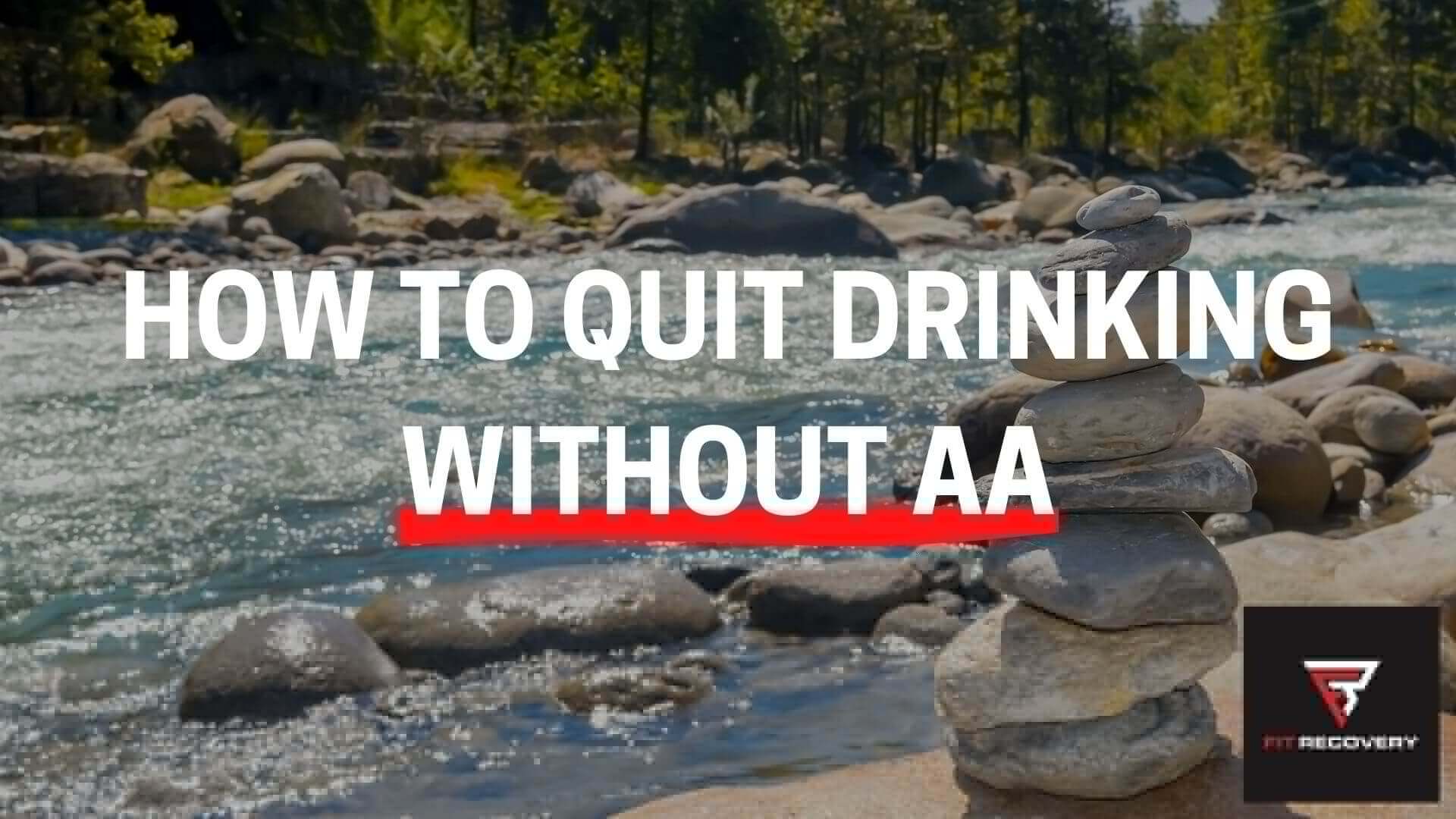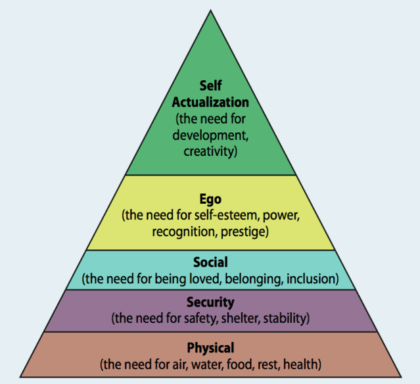I’m often asked how to quit drinking without AA, and while I have no interest in writing a hit piece on that organization, I am interested in helping people who have ultimately decided that AA is not for them.

I was once one of these people. I found that AA meetings were useful during early recovery, in which I still needed proof that alcoholism was not my own unique form of insanity. After a few months, I stopped going due to boredom. I’d been told that meetings vary depending on location, but I did not want to drive far away to find out if this was true.
In the meetings I attended, I could not identify any male figures who inspired emulation. The sense of life in the room felt stagnant and tragic, not informative or uplifting. I was mystified by people who read the Big Book dozens of times instead of expanding their horizons. The Big Book itself left me with some unresolved questions:
- If alcoholism is a disease of the mind and body, where is the guidance for restoring health to the body – and isn’t the brain part of the body?
- What if chronic relapsers weren’t deficient in honesty, but rather in brain chemicals that made life without alcohol feel worthwhile?
- For people who are already predisposed to depression, is powerlessness a better strategy than empowerment?
- Is divine intervention the most effective form of treatment for alcohol addiction in the 21st century?
- Does it make more sense to classify alcoholism as a “disease with no cure” or as a biochemical/metabolic disorder with multiple forms, and potentially multiple cures, given new research into both alcoholism and neuroplasticity?
I’m glad I asked these questions. For several years, they served as the fuel for research that has allowed me to help myself, help others, and write articles that resonate with thousands of readers on Fit Recovery.
With all of that said, many of my private coaching clients have utilized AA along with the nutritional, lifestyle, and fitness strategies they’ve learned from me. I never tell anyone not to attend AA – I’m a fan of anything that helps, and different people need different strategies.
There is clearly something to be said for the spiritual component of recovery, and of life in general.
I’m simply one of countless people who have achieved a spiritual renaissance with a simple commitment to self-improvement and contribution to the lives of others.
I will proceed to outline how to quit drinking without AA – a subject that I wish I’d known something about before I ultimately lucked out and discovered on my own the strategies that turned me into a happy, liberated nondrinker.
Building Motivation To Quit
In the alcoholic brain, the biochemical need for alcohol supersedes desires for water and food. Alcohol addiction hijacks the primitive midbrain, which then sends out powerful impulses that demand alcohol and overrule rational thoughts about abstinence. If we think about alcoholism in terms of Maslow’s Hierarchy of Needs, then we would have to superimpose “alcohol” into the bottom of the pyramid – and place it first.

During my decade-long struggle with alcohol addiction, I began to doubt whether I had any free will at all. I did not understand the scientific underpinnings of alcohol addiction or even alcohol withdrawal.
However, like many people who have overcome alcohol addiction, I ultimately built enough motivation to do SOMETHING about my condition.
My condition was so bad that I had to detox with medical supervision. However, I had chosen voluntarily to seek help. I did not get a DUI, or end up in the hospital with alcohol poisoning. I had simply woken up and found myself incapable of driving to work – for the second day in a row.
I called my family and friends, told them everything I’d been concealing for so long, called my boss and had a very awkward conversation, and then enrolled in a detox center.
But how did I get to that point?
I finally linked so much pain to the idea of continuing to drink that it no longer seemed like a valid option.
I had stopped consuming alcohol and relapsed probably a hundred times on my own. I was sick of the withdrawal symptoms. My health, appearance, and behavior had all begun to deteriorate before my eyes.
Being drunk, sick, bloated, unattractive, and unreliable made me want to die. What saved me was that I began to visualize what I might become if I could just excise alcohol from my life.
The pain that I linked to the idea of drinking, and the pleasure that I linked to self-transformation, was the kernel that eventually grew into my nondrinking manifesto and self-help guide.
Can You Stop Drinking Alone?

Life-altering decisions can be made alone, but they are difficult to follow through on when you keep the most important people in your life in the dark. During detox and early recovery, your midbrain will scream and tell you that you need alcohol to survive. What medical texts dryly call “alcohol cravings” feel like extreme thirst, hunger, and suffocation all wrapped into one gruesome sensation – if your addiction is as severe as mine was.
Obviously, cravings can be put to an end by sabotaging yourself and pouring a huge drink. But there are supplements that can help to end physical alcohol cravings. And there are two major benefits to obtaining support for your efforts to quit drinking from at least one person you can trust:
- Accountability – You may be able to temporarily fool yourself into drinking again, but having someone on your side who genuinely cares about your progress adds an additional barrier to relapse
- Liberation – There’s often a huge sense of relief when we stop concealing a problem, share it with at least one other person, and then realize that we’re still accepted as human beings
Like many former alcoholics, I used to drink with my friends and family. They usually had no idea how much I was actually consuming, nor did they know that I often drank before I met up with them. Every time I attempted to quit without telling anyone, the people closest to me would be bummed out – not least of all because I was effectively going through untreated withdrawal, which turned me into an anxious, anhedonic, irritable insomniac.
Once I opened up to a select few people and declared that I was going to do something about my predicament, I never felt pressured to drink again.
My decision to open up permanently got rid of the peer pressure obstacle. I stopped seeing “friends” who only wanted to drink with me, and spent more quality time with people who actually cared about me. I later built many great friendships that had nothing to do with alcohol or recovery.
Quit Drinking Without AA By Getting Expert Guidance

There is another kind of support that you will need to stop drinking. Depending on the severity of your drinking problem, you will need some level of expert guidance to detox safely, restore your system to health, and stay motivated to see the light at the end of the tunnel. This kind of support cannot be obtained from family or friends, unless they have already walked the walk and have a deep understanding of alcohol addiction.
Comprehending alcoholism is no easy task for people who can take or leave alcohol. Even worse, the majority of doctors only learn about addiction as a brief elective in medical school, which may explain why close to one in six (!) doctors in the U.S. struggle with addiction themselves. (source)
In severe cases of alcohol withdrawal, there may be no safe alternative to medically monitored detox. I state this in all of my articles that discuss alcohol withdrawal, which in extreme cases can lead to seizures and even death.
In my opinion, AA’s greatest virtue is the unconditional support it offers to people who may have burned all of their relationship bridges and/or spent all of their money. However, AA was established in the 1930s, well before science began to illuminate how nutritional repair, lifestyle strategies, exercise, and meditation can literally rewire our brains.
About 90% of rehab centers in the U.S. are based on AA’s 12-step model. This means that patients pay tens of thousands of dollars to medically detox (a procedure that should cost a few thousand at most) and then spend 1-3 months going to AA-style group support meetings (which can be obtained for free).
Rehab is a multibillion dollar industry, despite the fact that 90% of people who receive expensive treatment relapse within four years. (source)
This is why you won’t find many guides on rehab websites about this.
So here are some solutions for obtaining expert guidance that can help you obtain the guidance you will need to proactively manage your recovery:
- There is a small, but growing number of doctors with experience in treating alcohol addiction holistically, using drugs for alcohol cravings as a last resort
- SMART Recovery is an alternative to AA that emphasizes science and personal development; I did not know about this organization when I quit drinking, but I have heard good things
- Drinking Sucks!, has proven to be transformative for many people who primarily needed a role model for alcohol recovery as well as a holistic program for dominating addiction
- Total Alcohol Recovery 2.0 helps people learn everything about alcohol addiction that they cannot get from AA meetings or traditional rehabs, and ultimately devise the best recovery plan for them
- Fit Recovery Private Coaching Programs have helped a large number of highly motivated individuals finally break free from the biochemical chains of alcohol addiction and turn their dreams into reality

There are some informative books that offer various strategies for conquering alcoholism. But the problem – as one of my enthusiastic readers pointed out to me – is that none of them put all of the pieces of the puzzle together.
Expert guidance should not be confined to just ONE of the biochemical, psychological, social, or spiritual pillars of recovery. It should address all of them!
The biochemical (or physical) pillar of alcohol recovery is crucial, and it has been ignored the most – to the detriment of everyone who is trying to rewire their brains away from addiction.
Building A Purpose-Driven Identity

Once you detox safely and restore the health of your body, brain, and spirit, then you will have one major task left to ensure that you transcend alcohol addiction for good.
The biochemical compulsion to drink dovetails with the creation of a false identity that we build to support that chemical dependence. This identity integrates assumptions and behaviors that we have to question. For years, I never questioned the notion that drinking alcohol was the most inherently desirable activity on earth.
My friends still refer to my former drinking self as “Old C” – the old me, whose defining characteristics seemed to be outrageous, caveman-like impulsiveness brought about by my unquenchable thirst for alcohol.
Luckily I never got into huge trouble as Old C, and somehow my friends still managed to find me endearing, but everyone respects and admires New C way more. What my friends didn’t know was that my old self was miserable whenever I wasn’t drinking – and I had an inflamed pancreas, fatty liver, memory loss, and numerous other health disasters waiting to happen that could be attributed solely to my gargantuan alcohol consumption.
People who attend AA seek to make “the fellowship” their number one priority for the rest of their lives. Instead, I dedicated myself to intense, 24/7 self-improvement – reading books by great authors, lifting heavy weights every day, and doing the best job I possibly could building up other people’s strength in the gym as a trainer.
During this time frame, I began to discover the tremendous power of supplementation for alcohol recovery.
My own sense of well-being shot through the roof and I began to experience even more fulfillment from helping others, in the gym and through Fit Recovery.
My relationships became stronger and alcohol became a totally moot substance for me.
It took me three years to achieve this identity shift from “Old C,” but it was worth every ounce of confusion and self-doubt that I experienced along the way.
It’s up to you to build your own identity. You can start by visualizing the outcomes you would like to turn into realities, as well as the values that you would like to project out into the world. This can help you build the motivation to change.
It’s impossible to predict exactly how everything will fall into place along the way, but I’m here to tell you that if you have faith in yourself and the resolve to win, you will absolutely prevail!!

Author
-
Chris Scott founded Fit Recovery in 2014 to help people from around the world dominate alcohol dependence and rebuild their lives from scratch. A former investment banker, he recovered from alcohol dependence using cutting-edge methods that integrate nutrition, physiology, and behavioral change. Today, Chris is an Alcohol Recovery Coach and the creator of an online course called Total Alcohol Recovery 2.0.
View all posts





